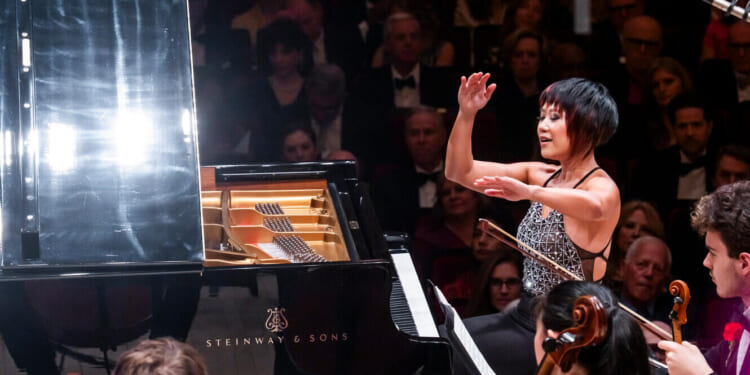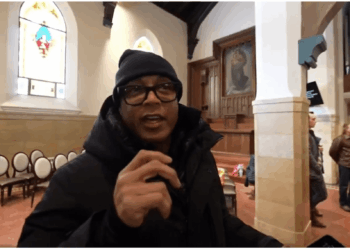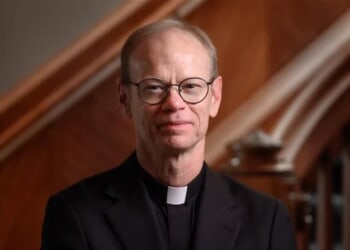Over the years, Carnegie Hall has opened its season with great orchestras—the Berlin Philharmonic, for example. Last night’s opener was somewhat experimental. The orchestra onstage was the NYO-USA All-Stars. A little explanation is in order.
“NYO-USA” stands for “National Youth Orchestra of the United States of America.” This ensemble gave a concert in Carnegie Hall last summer, under the baton of Gianandrea Noseda. In my review, I wrote, “The youngsters wore black jackets and shocking red pants.” Last night, the All-Stars were more traditionally, less gaily, attired. In any event, they looked sharp.
“All-Stars”? Yes. According to publicity, they constitute “an extraordinary Carnegie Hall alumni orchestra of young professionals.” Last night, they were conducted by Daniel Harding, the Englishman who doubles as a commercial-airline pilot (seriously).
The evening was a gala one, with a decked-out crowd. Isabel Leonard, the mezzo-soprano, sat front and center on the first tier, looking like a movie star, as usual. The program was composed of favorites by Bernstein, Tchaikovsky, and Stravinsky.
The Bernstein was the Symphonic Dances from West Side Story—or three selections therefrom. The first was “Somewhere,” that art song. I have always thought that Schubert would look at it and say, “Huh. That’s good.” The All-Stars played it lovingly, with the French horn making a fine, almost Dohr-esque contribution. In the ensuing Scherzo and Mambo, the players were spirited and stylish.
Then a piano was wheeled out onstage for the Tchaikovsky Concerto (the First, of course, not the Second, which has always lived in the shadow of its predecessor). Our soloist was Yuja Wang, the Chinese sensation. She is in her late thirties now. How much longer can I refer to her as a “sensation”? Indefinitely, I think.
Maestro Harding was nowhere to be seen. Not only would Ms. Wang play the concerto, she would conduct it, after a fashion. Is this wise?
If you’re asking me, you’re asking the wrong person. I have my doubts about “play-conducting” Mozart, to say nothing of Romantic concertos such as the Tchaikovsky. I have given my reasons in these pages, or pixels, many times.
But Yuja Wang is not to be denied. How did the experiment go? Interestingly. On her feet, as conductor, Wang began the concerto with one tempo. When she sat down, to play, she rushed—setting another tempo. I think the first movement had about nine tempos.
The music often sagged, and dragged, lacking shape and momentum. In my view, this experiment was an advertisement for why the Tchaikovsky Concerto needs a conductor. But a good time seemed to be had by all, and Wang did some stupendous playing, with those “wet spaghetti” arms. I can only describe her octaves as “Horowitzian.”
In its ovations, the audience asked for an encore—I myself was hoping for some Kapustin—but she gave none.
Daniel Harding returned to lead a suite from Stravinsky’s Firebird. Earlier, talking about the Bernstein, I used the words “lovingly,” “spirited,” “stylish.” Those same words apply to the Stravinsky as well. Once more, the horn was almost Dohr-esque. And you know who sat at the keyboard, in the orchestra? Yuja Wang. That is luxury casting.
I wonder whether she was paid a union fee . . .

















